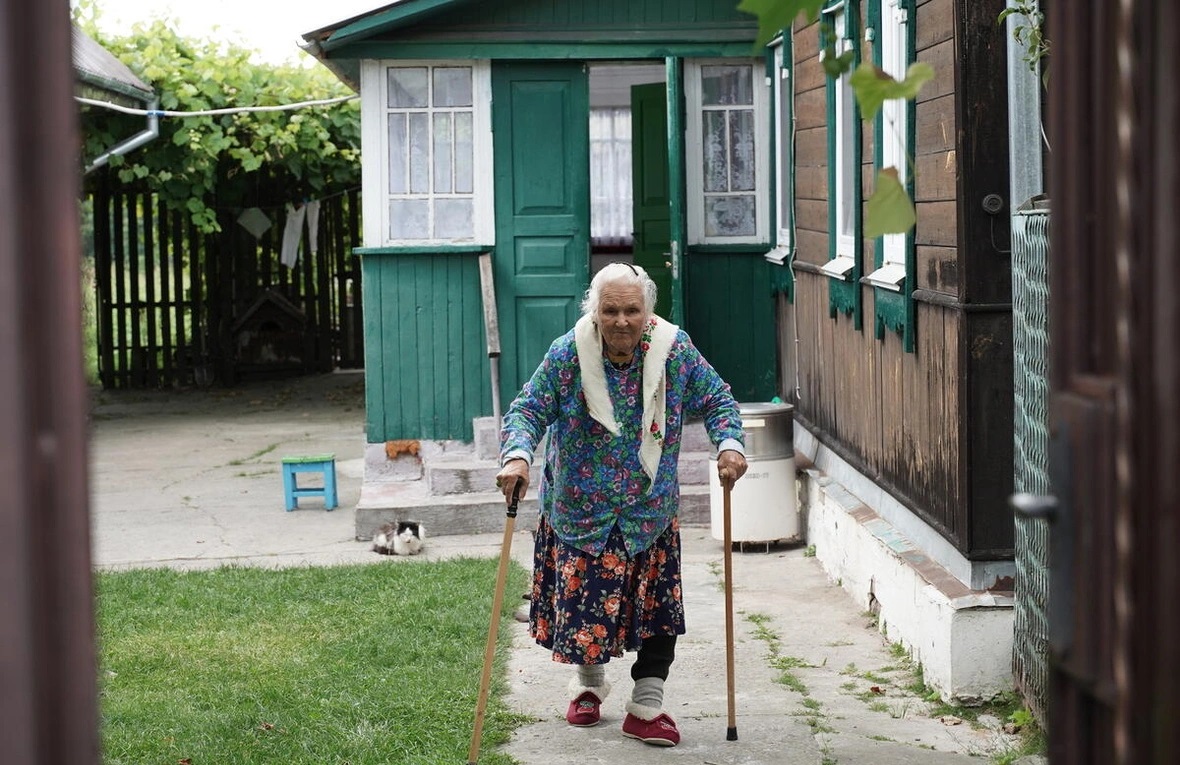Joint UNHCR/OCHA press release

Halyna, 97, in the yard of her house in Kyiv Oblast. It was repaired by UNHCR after being damaged by artillery fire. © UNHCR/Alina Kovalenko
GENEVA – The United Nations and partners today asked donors for a combined $4.2 billion to support war-affected communities in Ukraine and Ukrainian refugees and their host communities in the region throughout 2024.
Nearly two years since the war’s rapid escalation, 14.6 million people need humanitarian assistance in Ukraine – a staggering 40 per cent of the population. Some 6.3 million people have fled the country and remain refugees, mostly across Europe.
A recent wave of attacks underscores the devastating civilian cost of the war, while a bitter winter is ratcheting up the urgent need for life-saving humanitarian aid.
In front-line towns and villages, people have exhausted their meagre resources and rely on aid to survive. In the Donetsk and Kharkiv Regions, families shelter in damaged houses with no piped water, gas or electricity. Constant bombardments force people to spend their days in basements. Children cannot play outside, let alone attend school.
The UN Office for the Coordination of Humanitarian Affairs (OCHA) coordinates the response inside Ukraine. This Humanitarian Needs and Response Plan requests $3.1 billion for 2024 and targets 8.5 million people. UNHCR, the UN Refugee Agency, coordinates the Regional Refugee Response Plan (RRP), which requests $1.1 billion and targets 2.3 million refugees and host communities.
In total, the two highly prioritized UN plans aim to support some 10.8 million people in Ukraine and the region.
“Hundreds of thousands of children live in communities on the front lines of the war, terrified, traumatized and deprived of their basic needs. That fact alone should compel us to do everything we can to bring more humanitarian assistance to Ukraine,” said the Under-Secretary-General for Humanitarian Affairs and Emergency Relief Coordinator, Martin Griffiths, who is also the head of OCHA.
“Homes, schools and hospitals are repeatedly hit, as are water, gas and power systems. The very fabric of society is under attack with devastating consequences. Our response plan, implemented with national NGOs and volunteers, includes the full range of assistance.”
Ukrainian refugees in neighbouring countries also need increased and sustained support. Despite efforts for inclusion, only half of school-age refugee children are enrolled in schools in host countries, while a quarter of refugees in need struggle to access health care. Only 40 to 60 per cent are employed, often below their qualifications, and many remain vulnerable with no means to support themselves.
“Although their plight is no longer in the headlines, millions of refugees from Ukraine still need urgent support,” said the UN High Commissioner for Refugees, Filippo Grandi. “Host countries continue to extend protection and include them in society, but many vulnerable refugees still need help. They shouldn’t feel pressed to return because they cannot make ends meet in exile. All refugees must be helped and given opportunities to use and build their talents to prepare them for eventual voluntary return when the situation allows.”
Despite extreme access challenges, especially to areas occupied by the Russian Federation, aid workers reached nearly 11 million people in Ukraine in 2023, with the support of the international donor community. Humanitarian organizations made every effort to increase assistance in the front-line communities, including through 105 inter-agency convoys, complementing the Government’s response and the efforts of volunteers, civil-society organizations and other local groups.
Neighbouring countries have generously hosted Ukrainian refugees for almost two years, but they urgently need more international support. In 2023, RRP partners reached more than 2.5 million refugees with support and protection, working to include them in national systems until it is safe to return.
Μοιράσου το στο Facebook Μοιράσου το στο Twitter